Forbes Israel released its annual Power Women list for 2019 late last month, honoring 50 influential and accomplished Israeli women who are making an impact in business, government, tech, journalism, culture, sports, and entertainment.
According to Forbes, these women “control huge companies, manage thousands of employees, invent breakthrough technologies and shape Israeli culture and society.”
The women on the list are government officials, high-ranking bank managers, doctors and researchers, businesswomen, social activists, R&D managers, journalists, and local celebrities.
Among them is the chairperson of the second largest food product manufacturer in Israel, the chief justice of Israel’s Supreme Court, the head of the Pancreatic Cancer Center at Israel’s largest hospital, a co-founder of an autonomous AI firm, a transgender rights activist, a beauty and lifestyle influencer, and Israel’s 2018 Eurovision Song Contest winner.
Forbes honored these impressive people at a Forbes Power Women 2019 event two weeks ago at the Labs TLV complex. Speakers included Ofra Strauss, chairperson of the Strauss Group and Etty Ben Zeev from the Technology Division of Bank Hapoalim, with personal stories from Aya Soffer, VP of AI Technology at IBM, and Keren Hochma, a writer and director who also produced the Israeli “Postcards” segments featured in the Eurovision Song Contest held in Israel in May.
Here are some of the selected honorees from the Forbes Israel Power Women 2019 list:
Business executives Karin Eibschitz-Segal, Dr. Dorit Dor, and Aya Soffer are “responsible for about ten thousands brilliant minds in Israel,” Forbes says. These women manage the development centers of three multinational tech giants — US chip maker Intel, Israeli security software company Check Point Software, and US computer hardware and information tech company IBM. Their departments have developed everything from modern computer chips to cyber protection tech to a robot that can conduct a debate with another human being.
In her current position as the director of R&D at Intel in Israel, Eibschitz-Segal oversees 7,000 employees in four development centers in Haifa, Jerusalem, Yakum and Petach Tikva which have developed some of the company’s most significant products.
Dr. Dor, VP of Products for Check Point Software’s R&D center, has had a number of pivotal roles since joining the company in 1995 when it was just 15 employees. (Now it has close to 1,500.) Dor, a veteran of the elite IDF Intelligence Unit 8200 during her military service, where she earned her doctorate in computer science and won the Israel Security Prize, is currently responsible for Check Point’s product management, researcn and development, and quality assurance (QA.)
Soffer, a veteran of IBM, and VP of AI Tech, is responsible for the company’s R&D activities in 12 laboratories around the world. According to Forbes, Soffer is particularly proud of IBM’s Project Debater, the first AI robot that can debate humans on various topics developed over six years at IBM’s Haifa research division in Israel.
Also on the list is Adi Soffer Teeni, Facebook Israel’s general manager. She is considered the country’s official representative for the social network giant. She also heads up the company’s Tel Aviv branch which employs over 60 people that not only help develop the flagship projects of Facebook International, but also do the local advertising, marketing, and online advertising for Facebook in Israel.
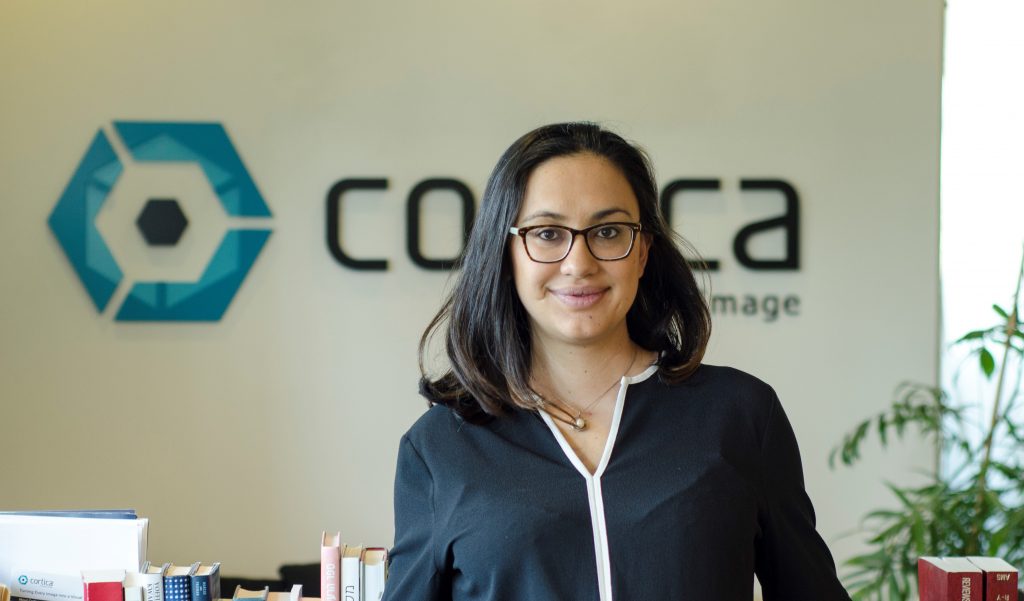
Last year, reports circulated that entrepreneur Elon Musk’s electric vehicles firm Tesla was in talks with the Tel Aviv vision firm Cortica, a developer of “next-generation” AI tech to create a computer vision system for autonomous platforms including vehicles. While Musk denied these reports and Cortica would not confirm them, suddenly the company was on everyone’s radar.
Cortica’s technology is based on complex and sophisticated brain research developed by Karina Odinaev and Igal Raichelgauz under the direction of Yehoshua Zeevi at the Technion – Israel Institute of Technology. Odinaev, on the Forbes Power Women 2019 list, met Raichelguaz during their military service in the 8200 unit and the two earned their doctorates in biomedical engineering.
Cortica and its groundbreaking tech is the result of over 10 years of their research.
Sign up for our free weekly newsletter
SubscribeSEE ALSO: Behind Cortica, The Israeli AI Vision Firm That May Have Caught Elon Musk’s Eye
Reem Younes, a resident of Nazareth who co-founded the global medtech firm Alpha Omega, also made the Forbes list. Younes, a graduate of the Technion, has been called a “role model for Israeli Arab entrepreneurial success in Israel.” Younes is also well known for her efforts in leading the charge for integrating members of Israel’s Arab community into the high-tech workforce.
Alpha Omega, which Younes co-founded with husband Imad in 1993, is a firm that offers products and solutions for neurosurgery and neuroscience.
On the cover of the print issue that features the 50 Power Women 2019 is Professor Hinanit Koltai, a senior researcher at the Agricultural Research Organization of the Volcani Institute in Rishon Letzion, who specializes in plant-derived substances as anti-cancer and anti-inflammatory drugs, plant hormones and plant genomics. More specifically, one of her leading research subjects is an area that seems to be attracting a number of Israeli ex- public figures – medical cannabis.
This year, Supreme Court chief justice Esther Hayut took the number one spot on Forbes’ list as she heads the Israeli legal system in one of its most tumultuous periods. She is followed by Ofra Strauss, chairperson of Strauss Group and “one of the strongest women of the Israeli industry,” Forbes wrote.
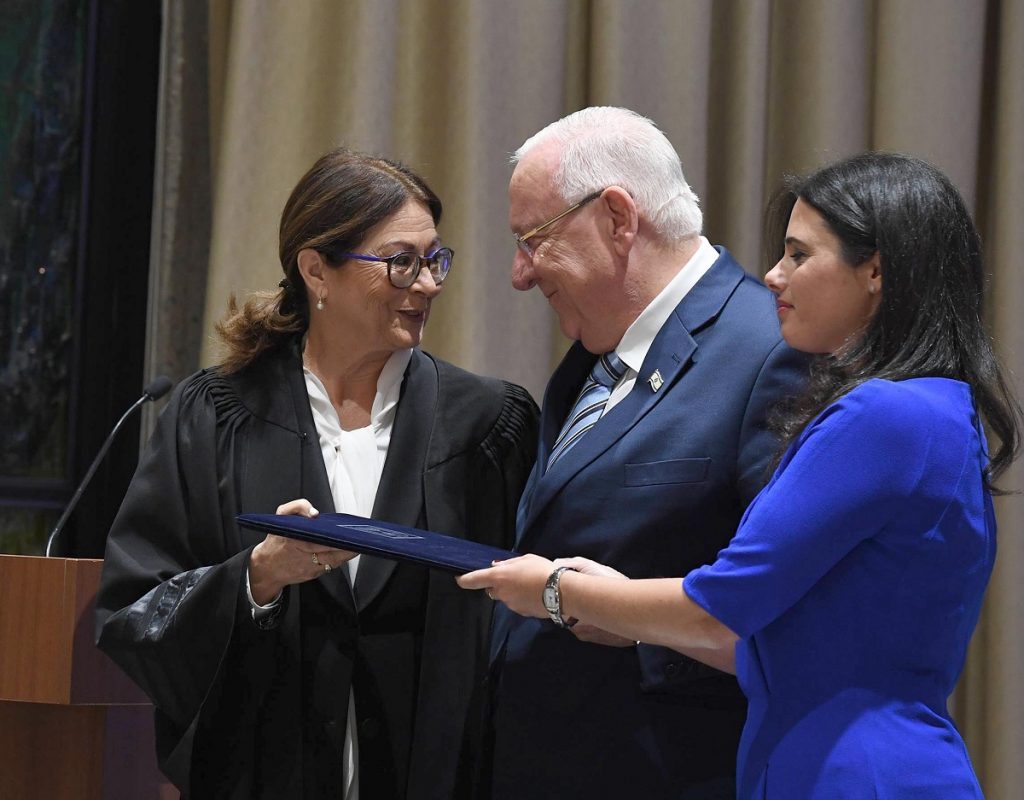
Among the bevy of influential women are several senior researchers from the best hospitals in Israel. Professor Yael Hanein, for example, is head of the Center for Nanoscience and Nanotechnology at Tel Aviv University. Hanein’s research focuses on the development of nano-electronic devices, particularly ones that connect with brain cells. She currently serves as a vice president in Nano Retina, an Israeli startup that developed a retinal implant using nanotechnology which allows the visual system of a blind person to recommunicate with the neural and retinal nervous system to restore vision.
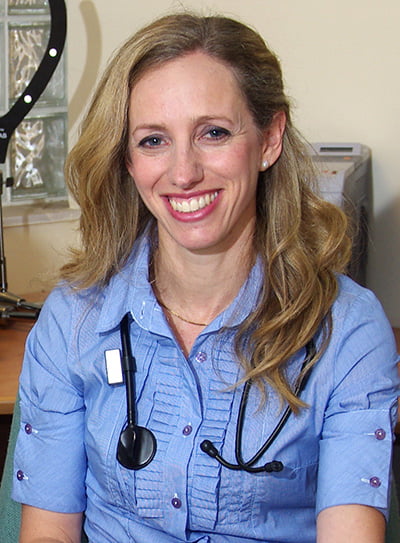
There is also Professor Irit Avivi, director of the hematology department at Ichilov Medical Center in Tel Aviv, one of only two medical centers in Israel that provide advanced blood cancer treatments based on breakthrough technology CAR-T cells.
Dr. Talia Golan, an Israeli oncologist and lead researcher of the Pancreas Cancer Olaparib Ongoing (POLO) Clinical Trial at Sheba Medical Center, also earned a spot on the list after a study published earlier this month showed promising findings for the biological treatment of pancreatic cancer.
The Forbes Israel list also included a number of journalists and prominent women in the media scene. Among them are veterans such as Israeli anchorwomen Ilana Dayan and Ayala Hasson, as well as newer names in Israeli broadcasting like Keren Marciano and Doria Lampel. Sivan Rahav Meir, a TV and print journalist, combines current events with the weekly Torah portion.
In the sports category, Paralympic athlete Moran Samuel has an inspiring story as a basketball player who suffered from a congenital malformation of a blood vessel in her spine that left her paralyzed from the waist down. She returned to sports, earning a Paralympic world medal and became a physiotherapist, speaker, and mother of two.
Female entertainers on the list included model, actress and TV personality Rotem Sela, and, Lucy Ayoub, an Israeli Arab TV presenter and influencer who won national admiration for her work as a co-host of the 2019 Eurovision Song Contest in Israel.
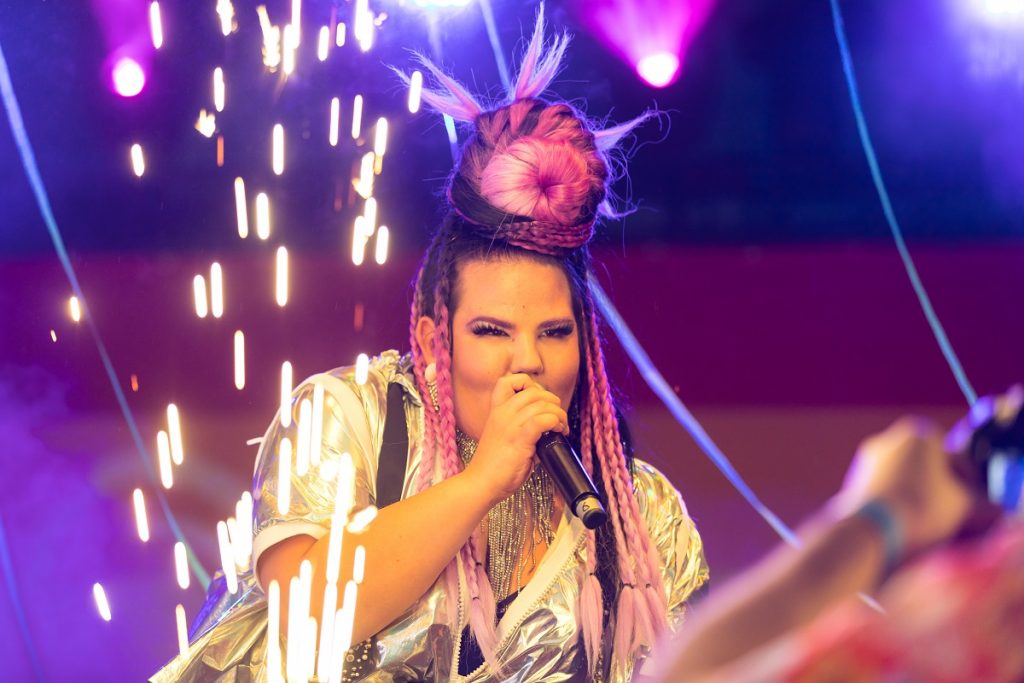
And finally, Netta Barzilai, the singer who won the 2018 Eurovision Song Contest received a spot on the list for the second year in a row for her positive body image, catchy songs, and of course, for bringing the song contest back to Israel this past May for the first time in 20 years.
Related posts

Editors’ & Readers’ Choice: 10 Favorite NoCamels Articles

Forward Facing: What Does The Future Hold For Israeli High-Tech?

Impact Innovation: Israeli Startups That Could Shape Our Future


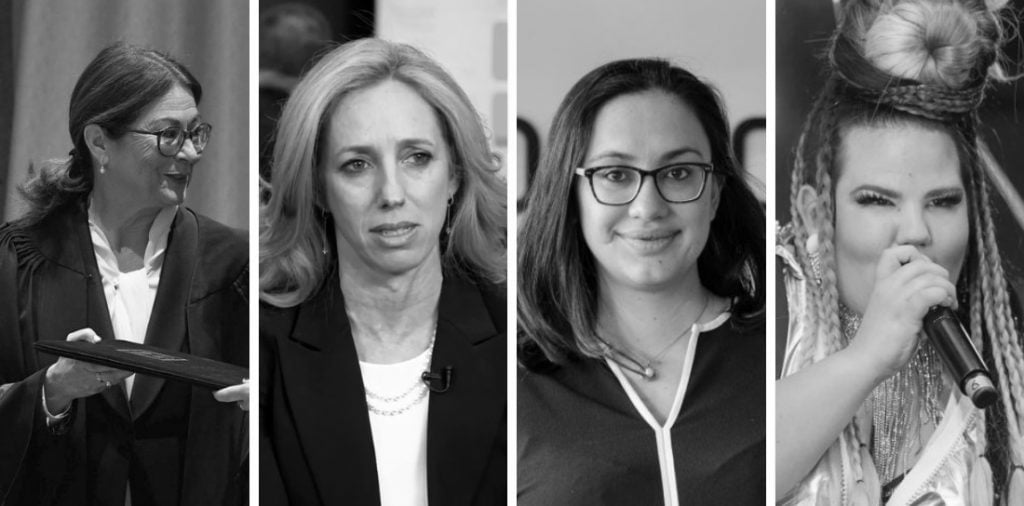

Facebook comments